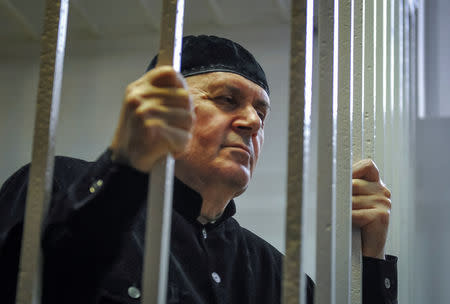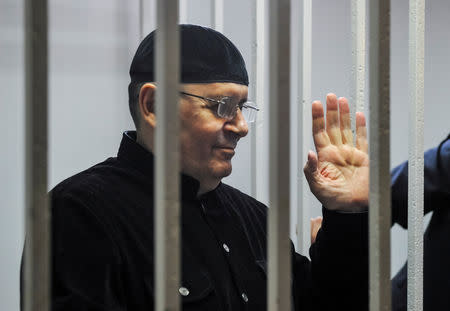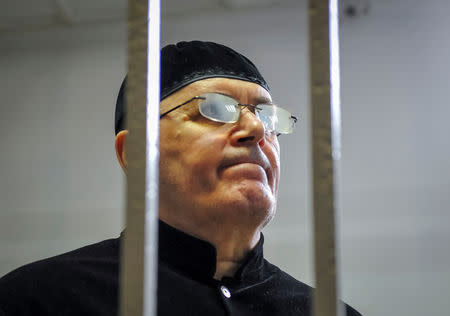Court in Chechnya sentences rights activist to four years in penal colony
By Maria Vasilyeva SHALI, Russia (Reuters) - A court in Chechnya sentenced Oyub Titiev, a prominent human rights activist, to four years in a penal settlement on Monday after finding him guilty of possessing illegal drugs, a charge his supporters say was trumped up. Titiev, who runs the office of the Memorial Human Rights Centre in the southern Russian region, was detained in January last year by police who said they had found around 200 grams (7.05 oz) of cannabis in his car after stopping him to check his documents. Titiev said the drugs were planted. He and his supporters allege he was framed in order to punish him for his human rights work and to stop Memorial working in Chechnya where its investigations have regularly irritated the authorities. "They fabricated the criminal case for five months and they fabricated the sentence for eight months," Titiev told reporters after the verdict. Reporters, diplomats and Titiev's neighbors and relatives packed the courtroom to hear his fate, while Titiev watched proceedings from inside a cage. He leaned on the bars as he listened to the judge read the verdict at a hearing that lasted for over nine hours. According to the sentence, Titiev will not be held in a prison cell, but will be kept under round-the-clock guard and sent to a penal settlement where he will be able to move around freely at some times of day and wear civilian clothes. He can also receive visits as often as he chooses. Oleg Orlov, a board member of Memorial who attended the trial, said he believed the public campaign mounted by Titiev's supporters had helped win a more lenient punishment. "But the sentence itself is a defeat - it is not justice," Orlov said. The majority-Muslim republic of Chechnya is governed by Kremlin-backed leader Ramzan Kadyrov whom human rights workers accuse of widespread abuses in the region, allegations he denies. Kadyrov's supporters credit him with bringing relative calm and stability to a region dogged for years by a simmering insurgency following two wars between Moscow and separatists after the 1991 Soviet break-up. Before his arrest, Titiev led a team that reported disappearances, torture, and punitive house burnings in Chechnya. His predecessor, Natalia Estemirova, was kidnapped and shot dead in 2009. Nobody has been convicted of her murder. (Additional reporting by Maria Tsvetkova; writing by Tom Balmforth; editing by Andrew Osborn)



